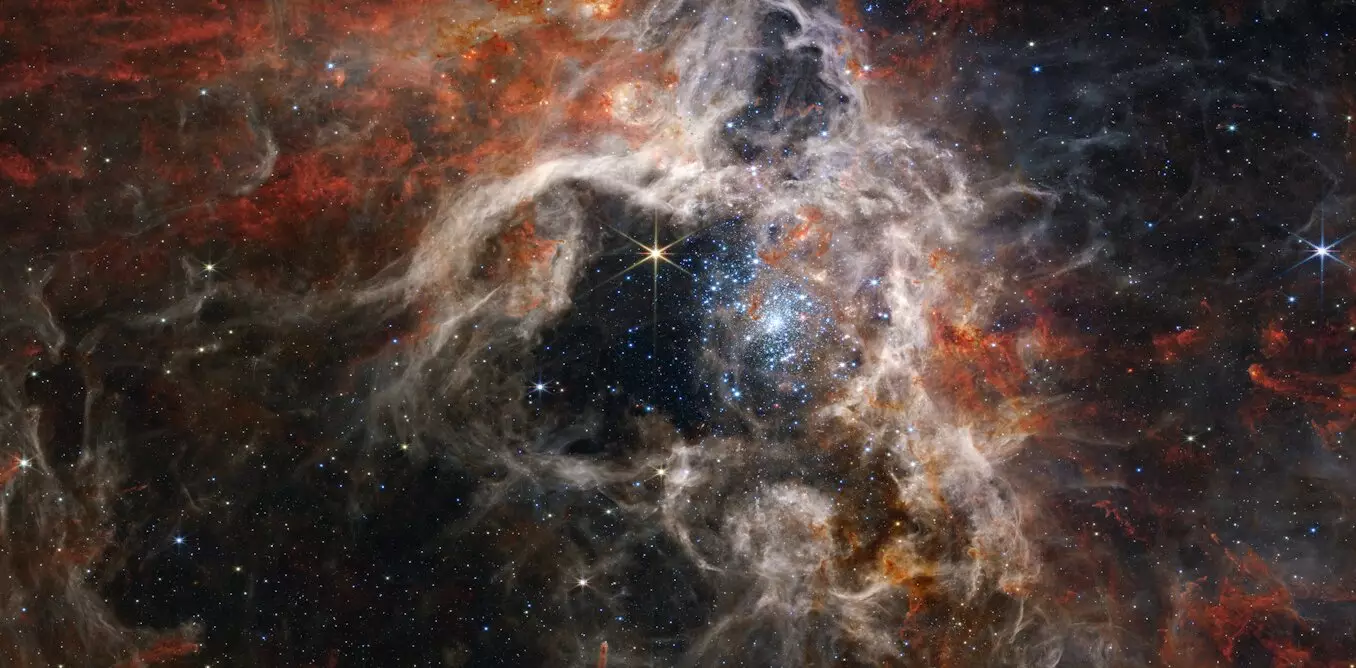Despite the seemingly stable facade of the universe, which has persisted for an impressive 13.7 billion years, it may be perched on the precipice of an inexplicable cosmic catastrophe. Recent research dives deep into this paradox, emphasizing the precarious nature of the Higgs boson—a vital particle that governs the mass and dynamics of all matter. According to findings published in Physical Letters B, a troubling scenario emerges whereby particular early universe models imply that the Higgs boson could have triggered its own downfall long ago, yet here we are, still existing under its governance. This stark contradiction raises critical questions about the true stability of a cosmos we often take for granted.
The Higgs Field: An Ocean of Stability?
The Higgs field acts as an omnipresent medium, much like a tranquil surface of water that gives rise to all matter’s mass through its interactions with elementary particles. This uniformity across the universe facilitates our understanding of the cosmos, permitting the laws of physics to remain constant over billions of years. Yet this assumption of stability falters when confronted with the unsettling possibility that the Higgs field might not occupy its most stable, low-energy state.
In this realm of quantum mechanics, the Higgs field could hypothetically transition to a lower energy state—a phenomenon physicists term a “phase transition.” To illustrate, think of water boiling: it transitions to steam, generating bubbles that disrupt its original properties. If the Higgs were to make a similar leap, the resultant “bubbles” could profoundly alter the very nature of existence as we know it. This prospect is not merely science fiction; it is a specter that looms over theoretical physicists, prompting investigations into how such transformations could occur and what they would mean for our universe.
The Role of Primordial Black Holes
Digging deeper, we encounter primordial black holes—tiny remnants theorized to have formed from the ultra-dense regions shortly after the Big Bang. Unlike their stellar counterparts, these light black holes could possess masses as negligible as a gram and contribute significantly to the dynamics of the Higgs field. The assumption that these primordial entities could trigger bubbling within the Higgs field is a hypothesis that carries weight in modern cosmology.
However, the question arises: have these primordial black holes truly existed? Some of the most accurate temperature measurements from the Large Hadron Collider (LHC) hint at the potential formation of black holes, but their existence remains an open debate among scientists. Previous models suggest that these primordial black holes could be heat sources capable of modifying the universe’s thermal properties, thus contributing to potential bubbling in the Higgs field.
The Catastrophic Absurdity of Meta-Stability
The paradox of the Higgs boson’s instability leads us to the fascinating concept of “meta-stability.” Although the universe might appear stable now, it may also be teetering on the edge of a cataclysmic event that could unfold eons from now. Some researchers contend that the presence of primordial black holes increases the likelihood that the Higgs could bubble, yet observations suggest we are not currently witnessing this distressing phenomenon.
Recent investigations illuminate the unlikely interplay between the Higgs field and primordial black holes, asserting that no substantial evidence supports the existence of such black holes. If they had indeed existed, they should have left detectable traces by now. Investigative reports eliminate many cosmological models that predict their existence; however, the quest continues. What if these primordial black holes were not just ephemeral relics of a fiery past? The discovery of remaining particles or gravitational waves could upend our entire understanding of physics, signaling potential new forces at play.
The Quest for Cosmic Comprehension
As the fabric of the universe unravels before our understanding, the necessity of unraveling these contradictions becomes increasingly urgent. Is the Higgs field more resilient than theorized? Or are we simply blissfully navigating a universe that teeters precariously on the brink of ceaseless transformation? Each unanswered question leads not only to uncertainties but also to a sense of wonder that transcends our terrestrial constraints.
Throughout the annals of time, humanity has grappled with existence’s fragile nature, and the latest findings surrounding the Higgs boson underscore this delicate interdependence of forces. In our relentless pursuit of answers, we are reminded that each revelation sheds light on a vast, enigmatic universe. Such investigations may ultimately lead us toward novel aspects of our own reality, illuminating paths filled with potential, challenge, and the exhilarating uncertainty of cosmological discovery. The journey through the cosmos—where edges blur and mysteries abound—promises that there will always be more to explore.

